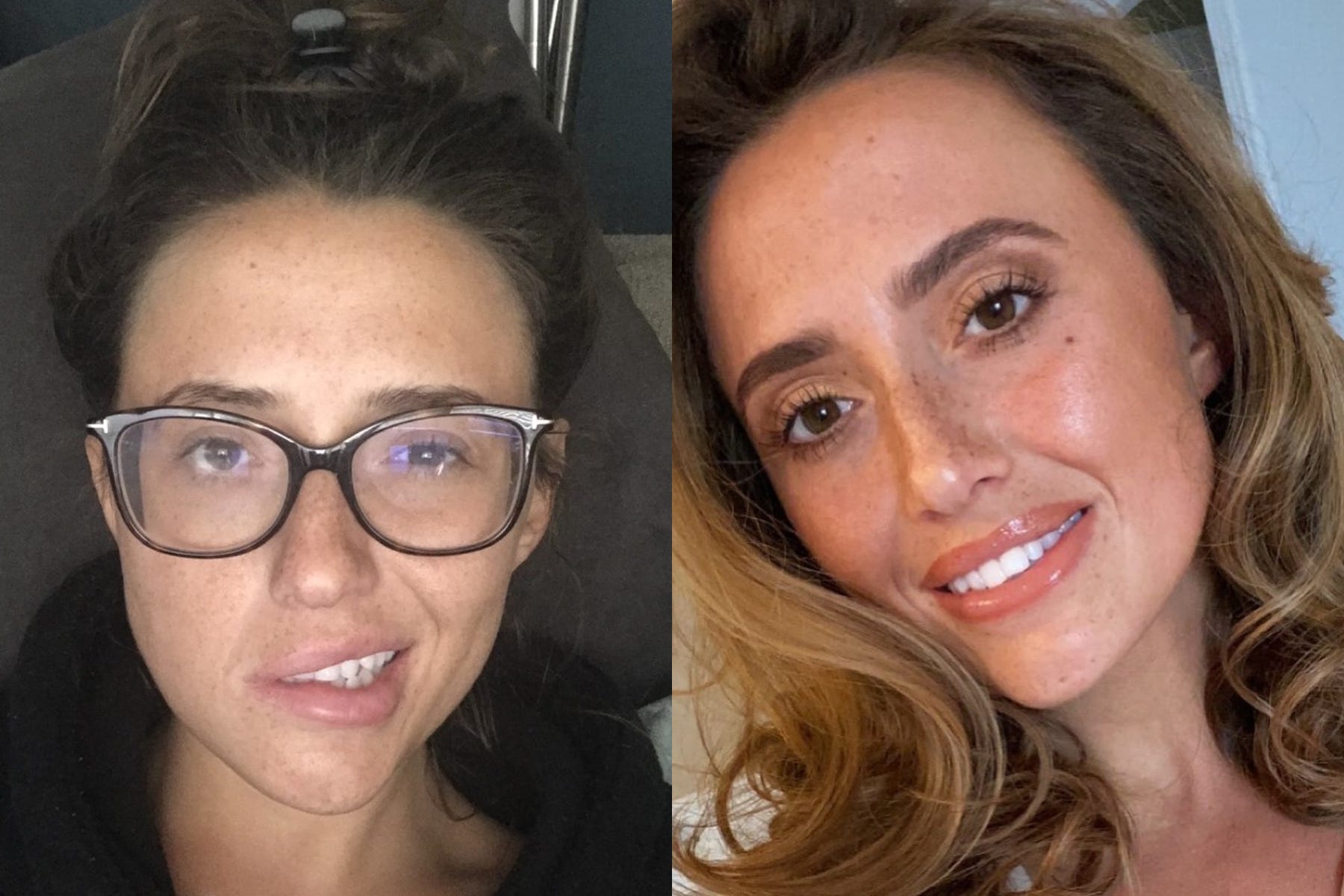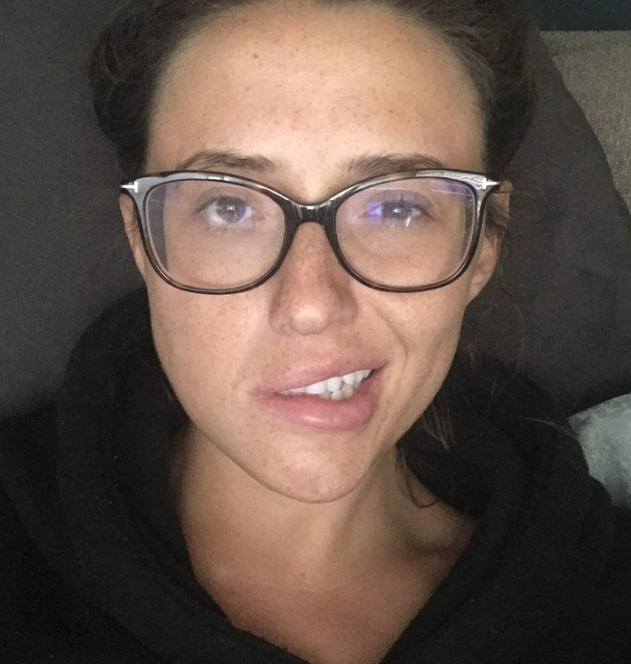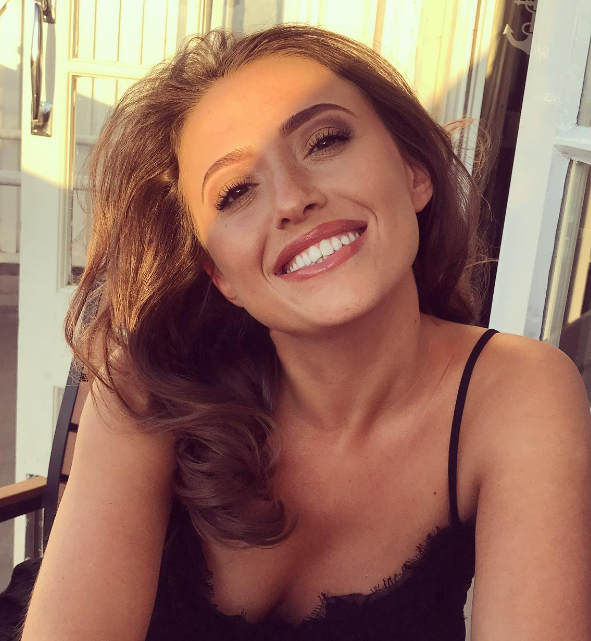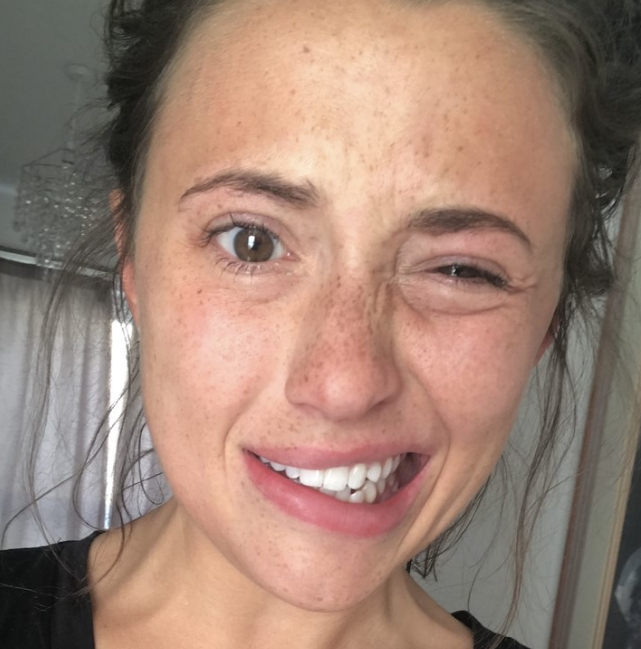Woman left unable to smile after waking up paralysed
Olivia Devyea watched half of her face slowly become paralysed while she was getting ready one morning, aged 25

A woman once known as “smiler” by all her work colleagues was left feeling like a “shell” of the person she was after waking up one morning with facial paralysis which has left her physically unable to smile.
Olivia Devyea, 29, a TV production manager from Greenhithe, Kent, was diagnosed with Bell’s palsy after she randomly woke up with a droopy eye and half of her face slowly became paralysed while she was getting ready for the day in 2019, at age 25.
The condition, which causes a weakness or lack of movement on one side of the face, left Olivia with “no self-confidence”, and four years since it began has only just started to improve.
She even had a round of electroacupuncture which caused further damage and synkinesis – unwanted contractions of the muscles of the face during attempted movement – that causes her eye to close when she is trying to smile.
After her face drooped, Olivia moved back in with her parents, did not leave the house for a fortnight, and avoided social situations for months on end – leading the once “bubbly and confident” woman to become “isolated and depressed”.
Olivia’s confidence was “shattered” when her face first became paralysed, but after accepting her condition, realising “worse things could happen” and “happiness comes from within”, she said she is now happier than ever.
“I just felt like having a big smile on my face was a part of me, and after the diagnosis, I felt like I’d lost part of my identity,” Olivia said.
“(Now) I’m at this stage where I’m happier than ever because I took a lot for granted.
“I definitely realised happiness comes from within.”
Olivia became a runner for ITV’s X Factor in 2015, eventually working her way up to a production coordinator in 2017, and was always known as “smiler” around the workplace.
“Everyone at work started calling me ‘smiler’ because I was always smiling in and around the studio,” she said.

But, little did she know, at age 25, she would suddenly never be able to smile properly ever again.
In July 2019, Olivia started feeling tingles in her face but went to bed, thinking she must be tired.
The next morning, Olivia was getting ready for her best friend’s baby shower and realised one of her eyes would not close properly.
“I put my contact lenses in, and I just felt a strong flow of air in one of my eyes,” she said.
“So I looked in the mirror and could see that it wasn’t closing at all, it was quite droopy, but I couldn’t notice anything else.”
She messaged her parents to see what they might think, explaining: “I was sort of just brushing it off to them.
“But, the more photos I took, I noticed my face had dropped, and my mouth wasn’t moving.
“I was sobbing, but the right side of my face wasn’t coinciding with how I felt.
“It was just completely paralysed.”

Olivia’s dad suggested it might be a stroke, as half of her face was dropping, so Olivia decided to ring an ambulance.
As soon as the paramedics saw Olivia, they said she had Bell’s palsy, and she was taken to the hospital, where she was prescribed steroids.
“I wasn’t really told anything by the doctors, it was very much here are some steroids, and you just have to rest, and in two weeks’ time, you might feel better, or you might never recover at all,” she said.
Olivia immediately moved back in with her parents, and stayed in bed for two weeks after the news, as she felt too self-conscious to see anyone.
“Part of me still wanted to smile and laugh, and I tried, but it didn’t work,” she said.
“I felt isolated and depressed at that point – I was like a shell of the person I once was with no self-confidence.
“My confidence was genuinely shattered – I was always really bubbly and confident.”

The steroids Olivia was given did not improve her face at all, and after doing some digging online and seeking support in a Facebook support group for Bell’s palsy, she discovered reflexology and acupuncture.
“I never saw a doctor again after being on steroids, and I wasn’t checked up on – it was just left for me to hopefully get better, so I started doing my own research,” she said.
After many rounds, her acupuncturist suggested electroacupuncture, and, willing to try anything, Olivia said yes – but little did she know it would cause further damage and synkinesis.
“After a few sessions, I started seeing movement, and it all started returning,” she said.
“However, I’ve now found out that it caused more damage, and I’ve got synkinesis.
“Electrotherapy basically rewired the nerves, but to the wrong places.”
Olivia continued researching other therapies and discovered that The Queen Victoria Hospital in East Grinstead, West Sussex, have a facial palsy unit, and after pushing and pushing her doctor for her to be referred there, she finally got an appointment at the beginning of 2020.
“I go there every six months for facial injections now, which is great – they email me regularly checking in on stuff or a video asking for an update, and it just feels like I’ve got someone now watching my recovery, not someone who has just left me to try different methods,” she said.
With these treatments and performing daily facial massages, Olivia‘s face has begun to improve, but she still cannot smile like she used to.
She explained: “The right side of my smile just doesn’t smile as wide as my left. I still can’t pout.
“I can’t really eat on that side of my mouth because I can’t get the full movement and sometimes food will fall out.”
Over time, Olivia began focusing on her happiness, explaining: “I moved back into my flat on my own and got away from relationships that weren’t working in my favour.
“I just started working more on myself, finding out what made me happy, and starting a routine.
“I think I just accepted that this is now what I look like. And if it gets better, that’s good. If it doesn’t, this is me now.”
Looking back on the last few years, and now she has accepted her diagnosis, Olivia said Bell’s palsy has made her happier.
“I’m glad I had it in some ways – it changed my view on many things – worse things could happen,” she said.
For support and more information about Bell’s palsy, contact the charity Facial Palsy and go to: www.facialpalsy.org.uk



Bookmark popover
Removed from bookmarks